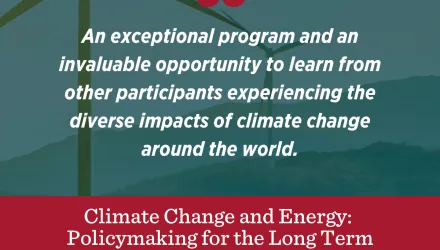Report to Congressional Requestors
Overview
Why GAO Obtained Experts’ Opinions
Elevated levels of greenhouse gases in the atmosphere and the resulting effects on the earth’s climate could have significant environmental and economic impacts in the United States and internationally. Potential impacts include rising sea levels and a shift in the intensity and frequency of floods and storms. Proposed responses to climate change include adapting to the possible impacts by planning and improving protective infrastructure, and reducing greenhouse gas emissions directly through regulation or the promotion of low-emissions technologies. Because most U.S. emissions stem from the combustion of fossil fuels such as coal, oil, and natural gas, much of this report centers on the effect emissions regulation could have on the economy.
In this context, GAO was asked to elicit the opinions of experts on (1) actions the Congress might consider to address climate change and what is known about the potential benefits, costs, and uncertainties of these actions and (2) the key strengths and limitations of policies or actions to address climate change. GAO worked with the National Academy of Sciences to identify a panel of noted economists with expertise in analyzing the economic impacts of climate change policies and gathered their opinions through iterative, Web-based questionnaires. The findings reported here represent the views of the 18 economists who responded to both questionnaires.
Two of the 18 economists who participated were Harvard Project on International Climate Agreements Co-Directors Joseph Aldy and Robert Stavins. In addition, two other participating economists, James Edmonds of the Pacific Northwest National Laboratory and William Pizer of Resources for the Future, are members of Harvard Project research teams.
Office, U.S. Government Accountability. “Climate Change: Expert Opinion on the Economics of Policy Options to Address Climate Change.” U. S. Government Accountability Office, May 2008







